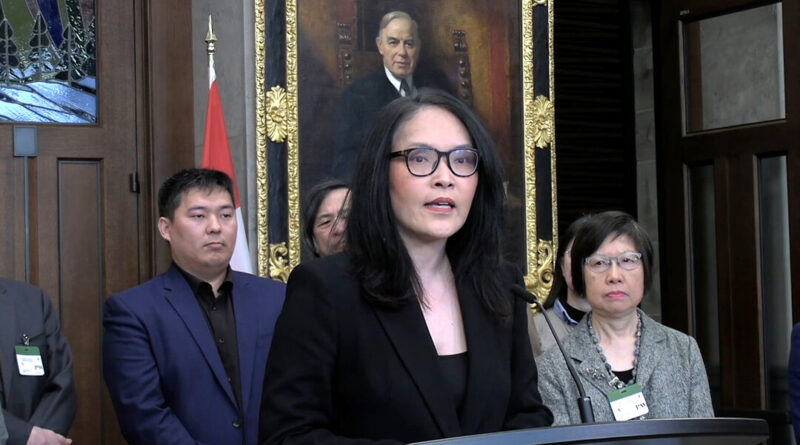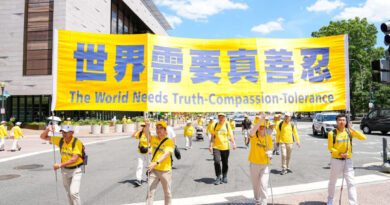MP, Rights Groups Urge Action on Gaps Identified in Foreign Interference Inquiry Report
Rights advocates and diaspora community representatives gathered in Ottawa on Feb. 27, urging the federal government to take stronger action on foreign interference and implement the recommendations of the Foreign Interference Commission.
Fung specifically urged the federal government to take immediate steps to address foreign interference in political party nomination campaigns, which she said are already occurring ahead of Canada’s upcoming federal election.
“We have seen signs of infiltration and foreign interference in nomination campaigns in various swing ridings. If no action is taken by the government, the foreign interference experienced in the 2019 and 2021 elections will repeat itself,” she said.

Gloria Fung, president of Canada-Hong Kong Link, joins rights groups on Parliament Hill on Feb. 27, 2025, to address gaps identified in the Foreign Interference Commission’s final report. NTD
Transnational Repression
Kwan also urged Ottawa to enhance protections for diaspora communities, raising concerns about the lack of reporting mechanisms. She referenced a Hong Kong individual who faced harassment, and despite reporting it to the RCMP, the threats were dismissed as a misunderstanding, Kwan said, with further threats occurring during the investigation.
“The government has to take this seriously. Measures need to be put in place. Action needs to be taken to send a clear message to foreign interference actors that Canada will not tolerate this and that we will take action to protect our community—the diaspora community,” she said at the Feb. 27 press conference.
Maria Cheung, executive director of Falun Gong Human Rights Group, highlighted that diaspora communities bear the brunt of foreign interference, particularly transnational repression. While she welcomed the Hogue report’s recommendation for a single, accessible hotline to report foreign interference, she urged that it also include provisions for reporting transnational repression, with protections for confidentiality, anonymity, and multilingual support.
Some diaspora groups raised concerns about the Hogue Commission’s limited capacity to investigate transnational repression targeting diaspora communities. Sherap Therchin, executive director of the Canada-Tibet Committee, highlighted this issue, noting that his organization, along with the Uyghur Rights Advocacy Project and 20 individuals linked to these groups, have been sanctioned by the Beijing regime.
Commissioner Hogue said that transnational repression is “a genuine scourge,” but stated that she did not “examine this phenomenon in depth” during the commission as it exceeds her mandate, which focused on the impact on democratic processes and institutions. “But what I have learned about it is sufficient for me to sound the alarm that the government must take this seriously and consider ways to address it,” Hogue wrote.





